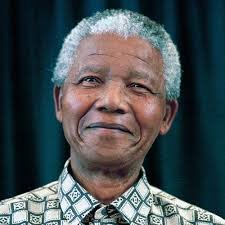
Introduction:
Nelson Mandela, often referred to as the father of modern South Africa, was a symbol of resilience, forgiveness, and hope. His life story serves as an inspiration to millions around the world, showcasing the power of determination and perseverance in the face of adversity. In this blog post, we’ll explore the remarkable journey of Nelson and the enduring legacy he left behind.
Early Life and Activism:
Nelson Mandela was born on July 18, 1918, in the village of Mvezo, South Africa. Despite facing discrimination and oppression under the apartheid regime, Mandela pursued his education and became involved in anti-apartheid activism at a young age. As a lawyer, he dedicated himself to fighting for the rights of black South Africans and advocating for equality and justice.
Imprisonment and Resilience:
In 1964, Nelson Mandela was sentenced to life in prison for his anti-apartheid activities. He spent 27 years behind bars, during which he became a symbol of resistance against oppression. Despite the harsh conditions of his imprisonment, Mandela remained steadfast in his commitment to the struggle for freedom and equality, inspiring people around the world with his unwavering resolve.
Release and Reconciliation:
In 1990, after years of international pressure and domestic unrest, Mandela was released from prison. His release marked the beginning of a new era for South Africa, as he worked tirelessly to dismantle the apartheid system and usher in a democratic society. Mandela’s message of reconciliation and forgiveness played a crucial role in healing the wounds of the past and building a more inclusive future for all South Africans.
Presidency and Leadership:
In 1994, Nelson Mandela made history by becoming South Africa’s first black president in the country’s first fully democratic elections. During his presidency, Mandela focused on reconciliation, nation-building, and addressing the legacy of apartheid. He implemented policies aimed at promoting social justice, economic development, and human rights, earning him widespread admiration both at home and abroad.
Impact on Human Rights:
Nelson Mandela’s leadership extended beyond South Africa, influencing global human rights movements. He was a vocal advocate for peace, justice, and equality on the international stage, working to end conflicts and promote democracy around the world. Mandela’s efforts earned him numerous awards and accolades, including the Nobel Peace Prize in 1993.
Legacy and Inspiration:
Nelson Mandela’s legacy extends far beyond his presidency. He remains a global icon of peace, justice, and human rights, revered for his humility, wisdom, and compassion. Mandela’s life serves as a reminder of the power of forgiveness, reconciliation, and the ability of individuals to bring about positive change in the world.
Conclusion:
Nelson Mandela’s life journey is a testament to the triumph of the human spirit over adversity. From his early days as a freedom fighter to his historic presidency and beyond, Mandela’s unwavering commitment to justice and equality continues to inspire people of all ages and backgrounds. As we reflect on his legacy, let us honor Mandela’s memory by striving to uphold his values and work towards a more just and compassionate world.
FAQs
Who was Nelson Mandela?
Nelson was a prominent South African anti-apartheid revolutionary and politician.
What is Nelson Mandela famous for?
Mandela is renowned for his role in ending apartheid in South Africa and his subsequent presidency.
When was Nelson Mandela born?
Nelson Mandela was born on July 18, 1918.
Where did Nelson Mandela grow up?
Nelson Mandela grew up in the Eastern Cape province of South Africa.
How did Nelson Mandela become involved in politics?
Nelson Mandela became involved in politics through his activism against apartheid and his leadership roles in the African National Congress (ANC).
How long was Nelson Mandela in prison?
Mandela spent 27 years in prison before being released in 1990.
What did Nelson Mandela achieve after his release from prison?
After his release, Nelson played a pivotal role in negotiations to end apartheid and became the first black president of South Africa in 1994.
How did Nelson Mandela contribute to reconciliation in South Africa?
Nelson advocated for reconciliation and forgiveness, establishing the Truth and Reconciliation Commission to address the atrocities of apartheid.
What is Nelson Mandela’s legacy?
Nelson legacy includes his tireless fight for equality, justice, and human rights, inspiring generations around the world.





